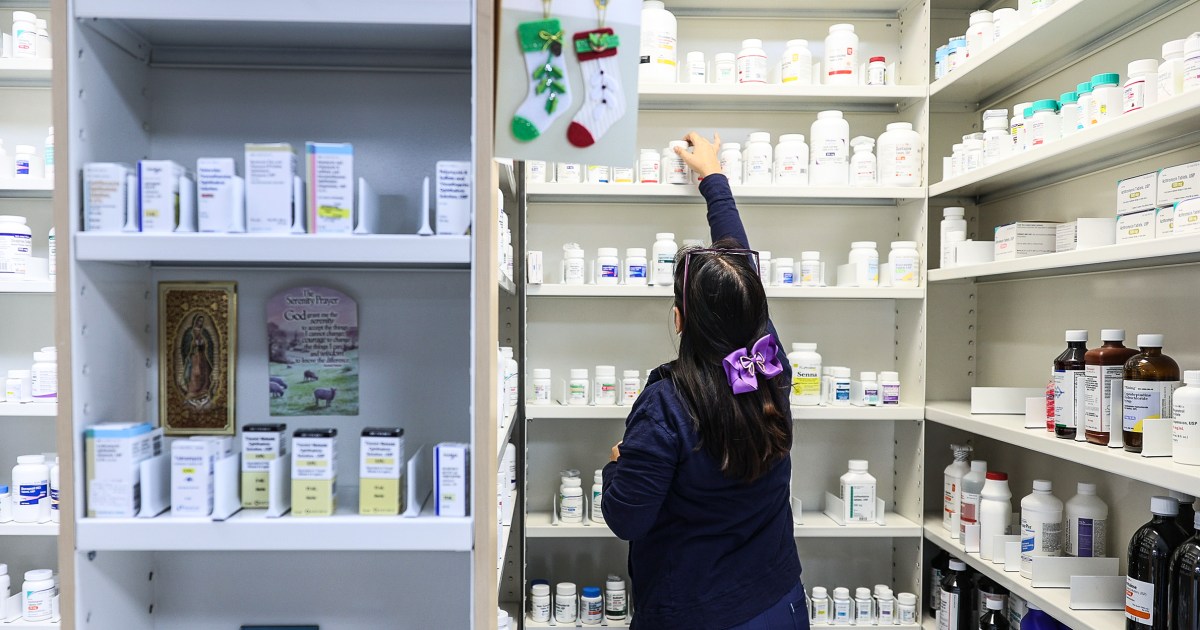
The plan to allow Florida to import cheaper prescription drugs from Canada is already facing outrage from Canadians who claim it could make their own drug supply shortages worse. And experts in the U.S. have doubts the program will ever help people in Florida get a cost break on medications for conditions like heart disease and diabetes.
After years of federal efforts to lower prescription drug prices, is a shaky plan to import them from Canada the best the U.S. can do?
“The U.S. needs to solve its own drug pricing problem, and not rely on other countries to do it for them,” said Dr. Joel Lexchin, a professor emeritus at the School of Health Policy and Management at York University in Toronto.
Under a new policy the Food and Drug Administration approved last week, the Florida government will be able to purchase prescription drugs in bulk directly from wholesalers in Canada, where drugs are often cheaper than in the U.S.
“It’s almost laughable that the U.S. thinks that they’re going to solve their problems about prices with Canadian drug supply, which is already stretched to the limit,” said Dr. Jacalyn Duffin, a professor emerita of medical history and medicine at Queen’s University in Kingston, Ontario.
Other states seeking mass drug imports
The push to allow states to buy prescription drugs from Canada in bulk has been in the works since at least 2019, when the Trump administration launched preliminary plans.
The Biden administration has taken its own steps to lower health care and prescription drug costs, including signing the Inflation Reduction Act, which lowered the cost of insulin for people on Medicare, among other provisions. However, this is the first action by the FDA to allow mass drug importation.
On Monday, the Biden administration appointed Stacy Sanders to become the first chief competition officer in the Department of Health and Human Services, with a priority of eliminating what it calls “corporate greed” in health care.
“This work just builds on the things that we are already doing,” Sanders said about the FDA’s move in an interview. “We’re going to continue to use any and all avenues as an agency to work to bring down prices and ramp up competition.”
Sanders didn’t say whether the Canadian importation plan would make a significant dent in prescription drug prices in the U.S. Instead, she noted that the Inflation Reduction Act is a “central part” of the Biden administration’s agenda.
“Our goal is really just to build on and amplify that work as much as possible,” she said.
When asked about Canada’s opposition, Sanders referred the question to the FDA.
The FDA did not respond to a request for comment.
At least eight other states — Texas, Colorado, North Dakota, Vermont, Wisconsin, Maine, New Hampshire and New Mexico — have passed similar laws, but many first need authorization from the FDA. Colorado submitted its proposal to the FDA in 2022 and said it will submit an updated proposal to the agency early this year.
The FDA rejected a proposal from New Hampshire in 2022.
While the U.S. only recently gained the authority to negotiate drug prices with drug companies, the Canadian government has been engaging in such negotiations for years, which has helped control and limit drug price increases in its country.
Since the FDA’s decision, the Canadian government has been taking steps to prevent the exportation of prescription drugs to the U.S. that are in short supply, Anne Genier, a spokesperson for Health Canada, the country’s public health agency, said in a statement.
That includes, Genier said, informing wholesalers in Canada that they are obligated under the country’s law to not distribute drugs to another group “unless the person holding the license has reasonable grounds to believe that the distribution will not cause or worsen a shortage of the drug in Canada.”
“Bulk importation will not provide an effective solution to the problem of high drug prices in the U.S.,” she said.
According to Global News, a news outlet in Canada, Canadian Health Minister Mark Holland said at media conference in Nova Scotia on Wednesday that there is “no way Florida, or any other foreign jurisdiction, will be allowed to threaten Canada’s drug supply.”
Currently, 10% to 15% of drugs on the Canadian market are in short supply, Lexchin said.
How long will it take to get medication from Canada?
Canada may not have to worry for a while, said Lawrence Gostin, director of the O’Neill Institute for National and Global Health Law at Georgetown University.
That’s because, he said, Florida needs to fulfill specific criteria to start importing drugs, including providing the FDA with details about the drugs intended for import, verifying their authenticity through testing to prevent counterfeits and adjusting the labeling to align with FDA-approved standards.
Additionally, the FDA outlined that Florida must submit a quarterly report to the agency on the imported drugs. The reports, the agency said, should include information on the drugs imported, the financial savings incurred, and any safety or quality concerns that may come from the new policy.
The office for Florida Gov. Ron DeSantis and the Florida Department of Health did not respond to requests for comment.
Canada’s resistance and regulatory hurdles mean people in Florida could wait years for cheaper medications, if they get them at all, said Stacie Dusetzina, a health policy professor at Vanderbilt University in Nashville, Tennessee.
“There are so many additional steps that are necessary and unwilling partners in those steps that it feels very unlikely that this would actually result in an importation of drugs in the near future or maybe ever,” she said.
AARP has pushed hard for the U.S. to allow states to import lower-priced prescription drugs.
Jeff Johnson, the state director of AARP Florida, said the state still needs to figure out its protocol for testing the prescription drugs as well as the process for relabeling the ones it plans to import from Canada.
He noted that alongside the 2019 Florida program permitting drug importation from Canada, there was another program that would have expanded the scope to include importation from a wider range of countries. That program was never implemented, he said.
“I think that if this becomes a U.S. versus Canada issue, what’s likely to happen is the discussion expands to try to look more broadly across other countries that similarly pay a whole lot less for their prescriptions than Americans,” he said.
Canada has limited options, and while the Canadian government may not directly influence U.S. policy, Lexchin from York University suggested that Canada could impose export restrictions, similar to measures European countries implemented on Covid vaccines during the pandemic.
“I don’t see a problem with imposing export restrictions,” he said. “And certainly the Canadian government has indicated that if necessary, they’ll do that.”
Source: | This article originally belongs to Nbcnews.com









